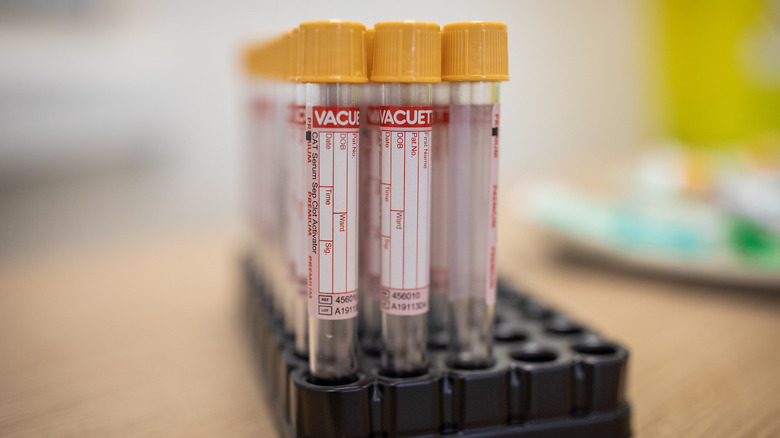What It Really Means When Your Red Blood Cell Count Is High
You just got lab results back from a red blood cell (RBC) blood test and your red blood cell count — also known as an erythrocyte count — is determined to be high.
What does this mean? And should it be a cause for concern?
According to experts at Healthline, a normal red blood count range for men is 4.7 to 6.1 million cells per microliter (mcL), 4.2 to 5.4 million per mcL for women (who are not pregnant), and 4.0 to 5.5 million per mcL for children.
Having a normal red blood cell count is vital. This is because the hemoglobin in red blood cells is what transports oxygen to your body's tissues, allowing them to function properly. If your red blood count is abnormal, you may experience various symptoms indicating that something is amiss. For instance, according to Healthline, If you have a high red count — also known as erythrocytosis — you may experience fatigue, shortness of breath, dizziness, or a faster heart rate, among other signs. If symptoms like these persist, it may be time to consider contacting your doctor about getting a red blood cell test.
High red blood cell count: Causes and treatment
According to Cleveland Clinic, a number of factors could be the cause for a high red blood cell count. These can include various medical or lifestyle conditions such as smoking, congenital heart disease, dehydration, kidney cancer, lung disease, a genetic bone marrow disease known as polycythemia vera, and living in high altitudes, among others.
If your high red blood cell count is due to a medical condition, the experts at Cleveland Clinic recommend that you consult with your doctor about the procedures or medications available that could help to normalize your levels. One option your doctor may suggest is a phlebotomy, a procedure that drains and collects your blood through a tube. This option, however, sometimes needs to be repeated over several visits to get results. If you are suffering from polycythemia vera, a medication called hydroxyurea that lowers the red blood cell count may correct the issue. While taking hydroxyurea, it is important to stay under a doctor's care to make sure your red blood count doesn't ultimately go too far in the other direction and fall below normal levels.
Doctors will often discover that you have a high red blood cell count when they are testing for other issues. If your red blood cell count results turn out to be abnormal, this could ultimately be a helpful warning sign that there are underlying health issues that your doctor can then investigate with further testing.


